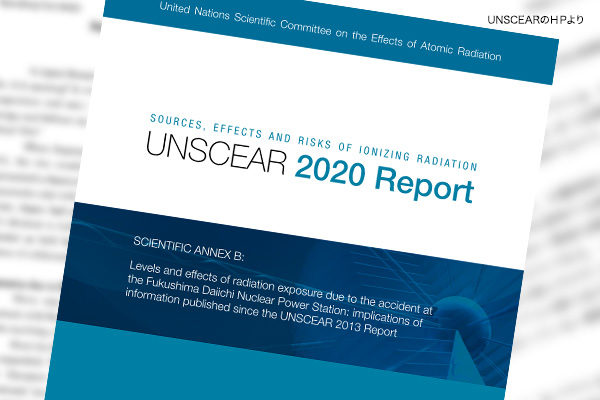After the European Commission, the executive branch of the European Union, set a direction of promoting investment in nuclear power generation, Junichiro Koizumi and four other former Japanese prime ministers who advocate nuclear phase-out sent a letter to the commission’s President Ursula von der Leyen on January 27, noting that many children are suffering thyroid cancer in Fukushima Prefecture due to the 2011 nuclear power plant accident. The other four were Naoto Kan, Yukio Hatoyama, Morihiro Hosokawa and Tomiichi Murayama.
The United Nations Scientific Committee on the Effects of Atomic Radiation (UNSCEAR) released a report last March concluding that atomic radiation has little chance to directly affect human health including through carcinogenesis in the future. The letter by the five former prime ministers ignored the report based on scientific evidence. A panel of experts in Fukushima Prefecture has also reported that no relationship has been seen between atomic radiation and thyroid cancer.
Bipartisan criticism of the letter
On February 2, incumbent Prime Minister Fumio Kishida criticized the letter for spreading wrong information and being inappropriate. Environment Minister Tsuyoshi Yamaguchi sent notes to the five, urging them to be cautious. Sanae Takaichi, chairwoman of the ruling Liberal Democratic Party’s Policy Research Council, protested that the letter would trouble children in Fukushima. Foreign affairs, environment and other LDP divisions at a meeting of their executives compiled a resolution condemning the five former prime ministers.
In the opposition camp, Japan Innovation Party Secretary General Fumitake Fujita and Democratic Party for the People leader Yuichiro Tamaki criticized the five. At the Constitutional Democratic Party of Japan where Kan serves as supreme adviser, leader Kenta Izumi refused to make any comment on the letter, saying that the party was not involved in sending the letter.
Fukushima Prefecture Governor Masao Uchibori urged the five to provide information based on scientific findings.
Information contamination is more dangerous
In September 2013, I and some 30 others, including those affected by the Fukushima nuclear plant accident, visited Ukraine, touring the Chernobyl nuclear power station known for its 1986 accident, the abandoned city of Pripyat, the newly built city of Slavutych with population of 24,700, and a radiology hospital and the Ukrainian National Chernobyl Museum in the capital city of Kyiv.
The hospital’s head, physicians and psychiatrists advised disaster victims in Fukushima to be careful about “information contamination” that would be “far more dangerous than radioactive contamination.” Information contamination includes excessive media reports and lawmakers’ remarks that have served as harmful rumors and led children from disaster-hit regions to be bullied.
In Fukushima Prefecture, residents still suffer from harmful rumors, a third damage after tsunami waves and the nuclear power plant accident. The five former prime ministers sent the world a wrong message that could lead to harmful rumors that are not based on facts.
For your information, it was the restart of nuclear power plants that rescued people’s livelihood and the economy in Ukraine.
Tadashi Narabayashi is a specially appointed professor at the Tokyo Institute of Technology and a director at the Japan Institute for National Fundamentals.


